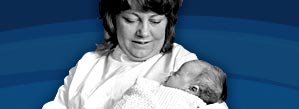Historical Facts
Fact 1
In the first year of the NHS, 15 million prescriptions were dispensed in Scotland at an average cost of 44 old pence (18.3p) and at a total cost of £2.75 million. There are now around 80 million prescriptions every year with an average cost of £13 and a total of £1000 million.
Fact 2
Both men and women now live an average of 10 years longer than they did before the creation of the NHS in 1948.
Fact 3
In 1982 the Scottish World Cup team became the first non smoking football team at the World Cup.
Fact 4
In 1896 tobacco was heralded as an effective way of preventing disease.
Fact 5
In 1948 394,399 people were discharged from Scottish hospitals compared with over 894,799 people in 2007/2008.
Fact 6
In 1948 NHSScotland employed 22,062 nurses and midwives. In 2008, this number had increased to 67,345.
Fact 7
Historically, Scotland has been at the forefront of medical technology. An Edinburgh doctor, Michael Woodruff, performed the first kidney transplant in 1960. The procedure was a success, with both donor and recipient living for a further six years.
Fact 8
The Scottish Ambulance service has greatly increased in size since 1948, when 90,000 patients were carried and 1,500,000 miles were covered. In 1998, almost two and a half million patients were carried by the service and ambulances across the country covering 18,875,754 miles.
Fact 9
The number of potentially fatal diseases has been significantly reduced if not eradicated entirely in Scotland since 1948. Measles has fallen from 15,193 deaths in 1948 to 39 deaths in 1998; Polio has fallen from 138 in 1948 to zero in recent years.
Fact 10
Infant mortality in Scotland has dropped from 44.7 in every thousand in 1948 to 5.3 in every thousand today.
Fact 11
They say that laughter is the best medicine. First recorded NHSScotland joke: Two women met in the doctor's surgery. Said Mary: "Hello, Jeannie. I didna see you here last week. What was wrong? Were you no weel?"
(Source: James Stirling Ross, The National Health Service in Great Britain, OUP 1952.)
Fact 12
By 1975, the NHS was still treating those who had served their country in the war which ended 30 years earlier. It provided 65 new adapted cars that year as well as more than 3000 new or repairs to artificial arms, legs and surgical footwear.
Fact 13
By 1948 the great Polish musician Ignacy Jan Paderewski had a small hospital named after him at the Western General in Edinburgh – part of the Polish Medical School. Paderewski headed the Polish Parliament in exile in London from 1940.
There were 1.55 million A&E visits in Scotland in 2006/2007 – a significant 50,000 rise on the previous year.
Most nurses in the 19th century workhouses collected their wages in beer.
